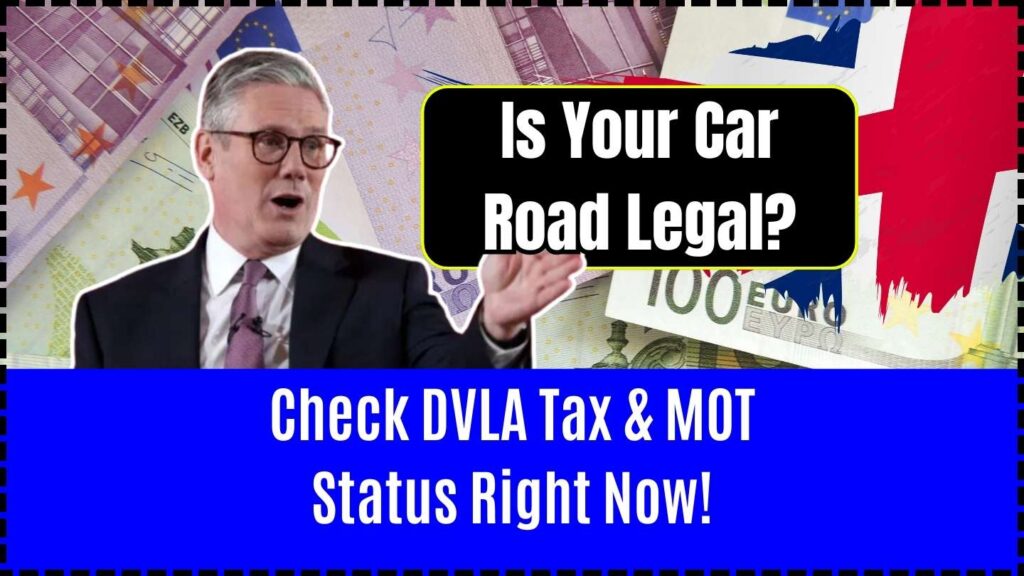Is Your Car Road Legal? Ensuring your vehicle is road legal is essential for both your safety and compliance with UK laws. Two critical components of this compliance are up-to-date vehicle tax and a valid MOT certificate. The Driver and Vehicle Licensing Agency (DVLA) provides accessible online tools to help you verify your vehicle’s status.
Is Your Car Road Legal?
Maintaining up-to-date vehicle tax and a valid MOT certificate is crucial for legal and safe driving in the UK. Utilizing the DVLA’s online services makes it simple to check your status and set up reminders. Stay proactive, informed, and compliant to avoid fines and ensure your vehicle is always road legal.

| Aspect | Details |
|---|---|
| Vehicle Tax | Mandatory for all vehicles used or parked on public roads. Driving without valid tax can result in fines up to £1,000. |
| MOT Certificate | Required annually for vehicles over three years old to ensure roadworthiness. Operating without a valid MOT can invalidate insurance and lead to penalties. |
| DVLA Online Services | Free and user-friendly platforms to check tax and MOT status using your vehicle’s registration number. |
| Automated Reminders | Setting up a DVLA account allows you to receive free reminders via text or email for tax and MOT renewals, helping avoid missed deadlines. |
Understanding Vehicle Tax and MOT
What is Vehicle Tax?
Vehicle tax, also known as Vehicle Excise Duty (VED), is a mandatory charge for all vehicles driven or parked on public roads in the UK. The amount varies based on factors like vehicle type, engine size, and CO2 emissions. Driving an untaxed vehicle can lead to severe penalties, including fines up to £1,000 and vehicle clamping or impounding.
What is an MOT?
The Ministry of Transport (MOT) test is an annual examination for vehicles over three years old, ensuring they meet road safety and environmental standards. A valid MOT certificate confirms that your vehicle is safe to drive. Operating without one not only risks fines but can also invalidate your insurance.
How to Check Is Your Car Road Legal?
1. Checking Vehicle Tax Status
- Visit the DVLA Vehicle Tax Check Website: Navigate to the official DVLA vehicle tax check page.
- Enter Your Vehicle’s Registration Number: Input the number plate details as prompted.
- View Tax Status: The system will display whether your vehicle is currently taxed and provide the expiration date.
2. Verifying MOT Status
- Access the DVLA MOT Status Check: Go to the DVLA MOT status check page.
- Input Registration Number: Enter your vehicle’s number plate information.
- Review MOT Details: You’ll see the current MOT status and the expiry date.
Setting Up Automated Reminders
To avoid missing renewal dates, the DVLA offers a free reminder service. Here’s how to set it up:
- Create a DVLA Account: Visit the DVLA website and set up your account.
- Opt-In for Reminders: Choose to receive notifications via text or email for upcoming tax and MOT renewals.
This proactive approach ensures you stay informed and compliant, reducing the risk of fines.
Additional Tips for Staying Compliant
- Set Calendar Alerts: Use your phone or email calendar to set reminders a month before your tax and MOT expire.
- Regular Vehicle Checks: Keep your vehicle well-maintained to avoid unexpected MOT failures.
- Stay Informed: Regularly visit official websites like GOV.UK for updates on rules and regulations.
Consequences of Non-Compliance
Failing to maintain valid vehicle tax and MOT can lead to:
- Financial Penalties: Fines up to £1,000 for driving an untaxed vehicle.
- Insurance Issues: An invalid MOT can void your insurance policy, leaving you unprotected.
- Vehicle Clamping or Impounding: Authorities have the power to clamp or seize untaxed vehicles.
- Driving License Points: In severe cases, you might receive penalty points on your driving license.
DVLA Vehicle Info—Check MOT History, Tax Status & More in Seconds!
DVLA Vehicle Check—Find Out Hidden Details About Any Car Instantly!
Frequently Asked Questions (FAQs)
Q1: What should I do if I haven’t received a tax renewal reminder?
Even if you don’t receive a reminder, it’s your responsibility to ensure your vehicle is taxed. Regularly check your status online and consider setting up electronic reminders through the DVLA.
Q2: Can I drive my car to the MOT test if the previous certificate has expired?
Yes, you can drive your vehicle to a pre-booked MOT test even if the current certificate has expired. Ensure the appointment is confirmed to avoid potential issues if stopped by authorities.
Q3: What happens if I don’t use my vehicle? Do I still need to tax it?
If your vehicle is off the road and not in use, you must submit a Statutory Off Road Notification (SORN) to the DVLA. This declares the vehicle is not being driven, and you won’t need to pay vehicle tax during this period.
Q4: How soon before expiry can I renew my MOT?
You can have your MOT test done up to a month (minus a day) before the current certificate expires without affecting the renewal date. This allows you to maintain the same renewal date each year.
Q5: Are there any vehicles exempt from MOT tests?
Yes, vehicles over 40 years old that haven’t undergone significant changes are exempt from mandatory MOT tests. However, owners are still responsible for ensuring their vehicles are roadworthy.







